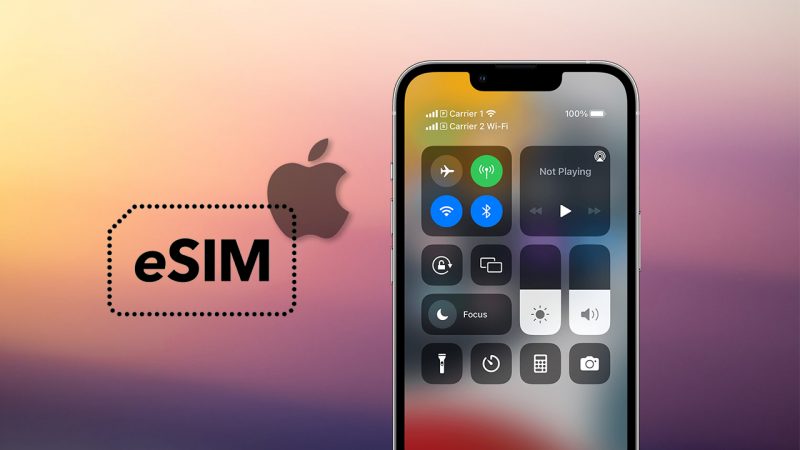What is an eSIM in Thailand? Explained
In recent years, mobile technology has undergone a significant transformation. One of the most notable changes is the adoption of eSIM cards. An eSIM (embedded SIM) card is a digital SIM that is built into a device and can be programmed with multiple phone numbers and data plans. This article will explain what an eSIM is, and provide information on how it works in Thailand.
Who uses eSIMs in Thailand?
eSIMs are becoming increasingly popular among travelers and expats who need to switch between different mobile operators frequently. In Thailand, eSIMs are used by people who want to avoid the hassle of changing physical SIM cards or those who have phones without a physical SIM card slot, such as Apple Watch and newer iPhones.
What devices support eSIMs in Thailand?
Currently, the list of eSIM supported devices in Thailand includes:
- iPhone XS, XS Max, XR, 11, 11 Pro, 11 Pro Max, SE (2nd generation), 12 Mini, 12, 12 Pro, and 12 Pro Max
- iPad Air (3rd generation), iPad Pro (11-inch), and iPad Pro (12.9-inch)
- Samsung Galaxy Fold and S20 Series
- Google Pixel 3, 3 XL, 4, 4 XL, 5, and 5a
- Motorola Razr (2020)
When should you use an eSIM in Thailand?
An eSIM is particularly useful for people who travel frequently since it allows them to switch between multiple mobile operators without changing the physical SIM card. eSIMs also come in handy when you have a phone without a physical SIM card slot. Additionally, if you have a dual-SIM phone, you can use both an eSIM and a physical SIM card at the same time.
How to activate an eSIM in Thailand?
To activate an eSIM in Thailand, you need to follow these steps:
- Check if your device is compatible with eSIM technology.
- Contact a mobile operator that supports eSIMs and request an eSIM activation.
- The operator will send a QR code or a download link to your device.
- Follow the instructions to activate the eSIM.
Pros and cons of using an eSIM in Thailand
Pros
- No need for physical SIM cards
- Can store multiple phone numbers and data plans on one device
- Easy to switch between mobile operators
- Useful for people who have phones without a physical SIM card slot
Cons
- Not all devices support eSIMs
- Limited number of mobile operators support eSIMs
- No physical backup in case of loss or damage to the device
- May not be useful for people who seldom switch between mobile operators
Alternatives to eSIMs in Thailand
If you prefer not to use an eSIM, there are several alternatives available in Thailand. You can purchase a physical SIM card from any of the major mobile operators such as AIS, TrueMove H, and dtac. Alternatively, you can use a roaming service offered by your home country’s mobile operator.
Step by step guide: How to switch to an eSIM in Thailand?
- Check if your device supports eSIM technology.
- Contact a mobile operator that supports eSIMs and request an eSIM activation.
- The operator will send a QR code or a download link to your device.
- Follow the instructions to activate the eSIM.
- Once activated, you can switch between different mobile operators on your device.
Comparison of mobile operators offering eSIMs in Thailand
| Mobile Operator | eSIM Availability | Prepaid Plans | Postpaid Plans |
|---|---|---|---|
| AIS | Yes | Available | Available |
| TrueMove H | Yes | Available | Available |
| dtac | Yes | Available | Available |
Tips for using eSIMs in Thailand
- Always keep a backup of your eSIM activation details
- Make sure your device is compatible with eSIMs before purchasing one
- Choose a mobile operator that offers reliable coverage in the areas you frequently visit
- Keep track of your data usage to avoid overage charges
The best mobile operators offering eSIMs in Thailand
The three major mobile operators in Thailand, AIS, TrueMove H, and dtac all offer eSIM support. The best mobile operator for you will depend on your specific needs and preferences.
If you value network coverage and reliability, AIS is a good option. If you prefer flexible data plans, then TrueMove H might be a better choice. Moreover, dtac offers affordable data plans and excellent customer service.
Learn more Best mobile operators in Thailand
Conclusion
eSIMs are becoming increasingly popular in Thailand as people seek more convenient ways to switch between mobile operators. While there are some limitations to using an eSIM, such as device compatibilityand limited operator support, it can be an excellent option for people who travel frequently or have devices without a physical SIM card slot.
When activating an eSIM in Thailand, it’s essential to choose a reliable mobile operator that offers good network coverage and flexible data plans. It’s also crucial to keep a backup of your eSIM activation details and monitor your data usage to avoid overage charges.
Overall, eSIMs offer a convenient and flexible alternative to traditional physical SIM cards in Thailand, and their popularity is likely to continue to grow as more devices become eSIM compatible.
FAQs After The Conclusion:
- How do I know if my device supports eSIM technology?
- Can I use an eSIM and a physical SIM card at the same time on my device?
- What happens if I lose my device with an eSIM activated on it?
- Are there any additional charges for using an eSIM in Thailand?
- Are eSIMs available for postpaid plans only?1. How do I know if my device supports eSIM technology?
You can check if your device supports eSIM technology by looking at its specifications or contacting the manufacturer’s customer support. Most modern smartphones and tablets support eSIMs, but it’s always best to check before purchasing one.
- Can I use an eSIM and a physical SIM card at the same time on my device?
Yes, if your device supports dual-SIM technology, you can use both an eSIM and a physical SIM card simultaneously.
- What happens if I lose my device with an eSIM activated on it?
If you lose your device with an eSIM activated on it, you will need to contact your mobile operator to deactivate the eSIM immediately. You may also be able to transfer the eSIM to a new device if it supports eSIM technology.
- Are there any additional charges for using an eSIM in Thailand?
The charges for using an eSIM in Thailand are similar to those for using a physical SIM card. However, some mobile operators may charge additional fees for eSIM activations or data plan changes.
- Are eSIMs available for postpaid plans only?
No, eSIMs are available for both prepaid and postpaid plans in Thailand. However, not all mobile operators offer eSIM support for their prepaid plans, so it’s essential to check beforehand.

